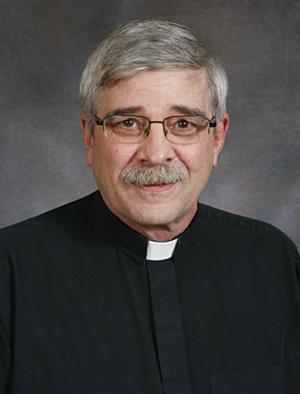The Christmas Exchange

by Timothy Teuscher
Friends, co-workers, classmates exchanging gifts at Christmas parties and at various get-togethers over the holidays. Family members gathered around a Christmas tree on Christmas Eve or early Christmas morning to exchange gifts. Stores crowded with people on Boxing Day exchanging those unwanted Christmas gifts.
“The Christmas Exchange” is not only an apt description of what takes place in the world’s celebration of Christmas, but it also summarizes well the true meaning and message of the day. In his familiar account of the nativity of our Lord, St. Luke refers to this wonderful and amazing Christmas exchange—the very Son of God Himself becoming one of us, taking upon Himself in the womb of the blessed virgin Mary our very flesh and blood, being born in a lowly stable as one of us. Or, as St. Paul puts it, “Christ Jesus, though he was in the form of God, made Himself nothing, taking the form of a servant, being born in the likeness of men” (Philippians 2:5-7).
“The Christmas Exchange” is not only an apt description of what takes place in the world’s celebration of Christmas, but it also summarizes well the true meaning and message of the day.
Now, the reason for exchanging gifts at Christmas is, of course, for the benefit, happiness, and joy of those to whom we give our gifts. That is precisely why the Son of God undertook this great Christmas exchange. He did it for us—for our benefit, our happiness, our joy. He did it so that we might receive what is His and so undergo a great exchange as well.
Think about it. Since the Son of God became one of us, we are the ones who are now sons and daughters of God. Since the Son of God was born as one of us, we are the ones who are now born again as children of God. Since the Son of God humbled Himself to be born of a virgin, we are the ones who are now glorified. Since the sinless, holy Son of God took upon Himself the guilt and the punishment that we by our many sins deserve, we sinful human beings are the ones who now receive His holiness and righteousness. Since He who is the King of kings and the great High Priest became one of us, we are the ones who are now members of and part of a royal priesthood. Since the only Son from heaven was born in Bethlehem as an obedient subject of that earthly kingdom ruled by the Roman emperor, Caesar Augustus, we are the ones who are now citizens of a heavenly kingdom.
But this is not the only exchange that we see in the Christmas story. There is also an exchange taking place between the angels and the shepherds. For what do we see and hear in St. Luke’s account of our Lord’s nativity? An angel from heaven announces to shepherds this “good news of great joy” (Luke 2:10) concerning the birth of the Saviour. The heavenly host breaks forth into that first Christmas carol: “Glory to God in the highest, and on earth peace among those with whom He is pleased” (Luke 2:14).
Think about it. Since the Son of God became one of us, we are the ones who are now sons and daughters of God. Since the Son of God was born as one of us, we are the ones who are now born again as children of God. Since the Son of God humbled Himself to be born of a virgin, we are the ones who are now glorified. Since the sinless, holy Son of God took upon Himself the guilt and the punishment that we by our many sins deserve, we sinful human beings are the ones who now receive His holiness and righteousness.
And when the account of Jesus’ birth ends, what is it that we see and hear? It is shepherds on earth now who are the ones proclaiming this Good News of great joy, “making known the saying that had been told them concerning this child” (Luke 2:17). It is shepherds on earth now who are the ones “glorifying and praising God for all they had heard and seen” (Luke 2:20). And that is still how it is today with you, with me, and with all who hear and believe this message of Christmas.
To be sure, the world in its unbelief celebrates Christmas in its own perverted way. It speaks words of peace and love and giving. But these are words devoid of anything pertaining to God; words conspicuous by their failure to mention Him who is born in Bethlehem’s manger; words with no foundation, no basis in reality. The world sings its Christmas songs, songs about snow and holiday cheer, about Jack Frost and Santa Claus.
But it is different for those who, like the shepherds, hear and believe the Christmas message of the birth of a Saviour, Christ the Lord. They have exchanged this worldly message and music of Christmas for the music and message of heaven itself—speaking to one another and to others not their own opinions or ideas, but instead the very Word of God Himself concerning a Saviour from sin and death—glorifying and praising in music and in song not ourselves but the gracious and merciful Most High God.
 And all because of this great Christmas exchange—an exchange that happens not just at Christmas but every time we gather together to hear the Word of God… an exchange that happens every time we partake of heavenly food at the Lord’s Table, the very body and blood of our Lord and Saviour… an exchange that will one day become a glorious, heavenly, eternal reality. As St. John declares, “When Christ appears we will be like Him, because we shall see Him as He is” (1 John 3:2).
And all because of this great Christmas exchange—an exchange that happens not just at Christmas but every time we gather together to hear the Word of God… an exchange that happens every time we partake of heavenly food at the Lord’s Table, the very body and blood of our Lord and Saviour… an exchange that will one day become a glorious, heavenly, eternal reality. As St. John declares, “When Christ appears we will be like Him, because we shall see Him as He is” (1 John 3:2).
The Christmas hymn sums it up in this way: “Let all together praise our God before His glorious throne; Today He opens heav’n again to give us His own Son… He undertakes a great exchange, puts on our human frame, and in return gives us His realm, His glory, and His name” (LSB 389:1, 4).
———————
Rev. Timothy Teuscher is President of Lutheran Church–Canada (LCC).




